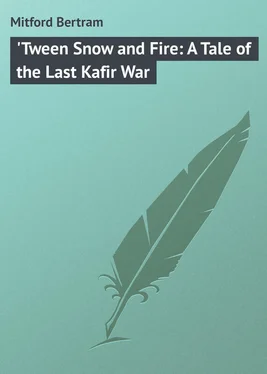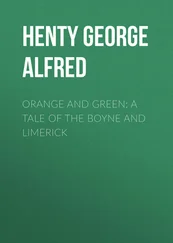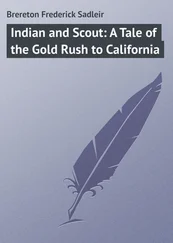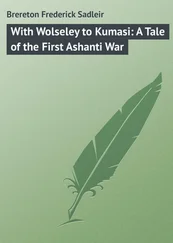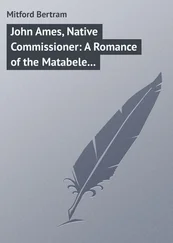Bertram Mitford - 'Tween Snow and Fire - A Tale of the Last Kafir War
Здесь есть возможность читать онлайн «Bertram Mitford - 'Tween Snow and Fire - A Tale of the Last Kafir War» — ознакомительный отрывок электронной книги совершенно бесплатно, а после прочтения отрывка купить полную версию. В некоторых случаях можно слушать аудио, скачать через торрент в формате fb2 и присутствует краткое содержание. Издательство: Иностранный паблик, Жанр: foreign_prose, на английском языке. Описание произведения, (предисловие) а так же отзывы посетителей доступны на портале библиотеки ЛибКат.
- Название:'Tween Snow and Fire: A Tale of the Last Kafir War
- Автор:
- Издательство:Иностранный паблик
- Жанр:
- Год:неизвестен
- ISBN:нет данных
- Рейтинг книги:5 / 5. Голосов: 1
-
Избранное:Добавить в избранное
- Отзывы:
-
Ваша оценка:
- 100
- 1
- 2
- 3
- 4
- 5
'Tween Snow and Fire: A Tale of the Last Kafir War: краткое содержание, описание и аннотация
Предлагаем к чтению аннотацию, описание, краткое содержание или предисловие (зависит от того, что написал сам автор книги «'Tween Snow and Fire: A Tale of the Last Kafir War»). Если вы не нашли необходимую информацию о книге — напишите в комментариях, мы постараемся отыскать её.
'Tween Snow and Fire: A Tale of the Last Kafir War — читать онлайн ознакомительный отрывок
Ниже представлен текст книги, разбитый по страницам. Система сохранения места последней прочитанной страницы, позволяет с удобством читать онлайн бесплатно книгу «'Tween Snow and Fire: A Tale of the Last Kafir War», без необходимости каждый раз заново искать на чём Вы остановились. Поставьте закладку, и сможете в любой момент перейти на страницу, на которой закончили чтение.
Интервал:
Закладка:
“Who are those people, Ncanduku?” said Eustace, after a few preliminary puffs in silence. “Except yourself and Sikuni here, they are all strangers to me. I do not seem to know one of their faces.”
The chief shrugged his shoulders, emitting a thick puff of smoke from his bearded lips.
“They are strangers,” he answered. “They are Ama-Gcaléka, and are returning to their own country across the Kei. They have been visiting some of their friends at Nteya’s kraal.”
“But why are they all so heavily armed? We are not at war.”
“ Whau , Ixeshane! You know there is trouble just now with the Amafengu (Fingoes). These men might be molested on their way back to their own country. They are afraid, so they go armed.”
“Who are they afraid of? Not the Amafengu, their dogs? Why should they go armed and travel in such strength?”
The chief fixed his glance upon his interlocutor’s face, and there was a merry twinkle in his eye as he turned away again.
“A man is not afraid of one dog, Ixeshane, nor yet of two,” he replied. “But if a hundred set upon him, he must kill them or be killed himself.”
Eustace uttered a murmur of assent. Then after a pause he said:
“To travel in a strong party like that in these times is not wise. What if these Gcalékas were to fall in with a Police patrol – would there not surely be a fight? That might bring on a war. I am a peaceable man. Everybody is not. What if they had met a less peaceable man than myself, and threatened him as they did me? There would have been a fight and the white man might have been killed – for what can one man do against twenty?”
“He need not have been killed – only frightened,” struck in the other Kafir, Sikuni.
“Some men are easier killed than frightened,” rejoined Eustace. “Last night some people from Nteya’s kraal attacked my brother, (The term ‘brother’ is often colloquially used among Kafirs to designate other degrees of relationship) stole his gun, and tried to kill him. But they did not frighten him.”
In spite of the conventional exclamation of astonishment which arose from his hearers, Eustace was perfectly well aware that this was no news to them.
“That is bad news,” said Ncandúku, with well-feigned concern. “But it may not have been done by any of our people, Ixeshane. There may have been some Fingo dogs wandering about the land, who have done this thing in order that the English may blame us for it.”
It was now Eustace’s turn to smile.
“Does a dog wander to the mouth of a den of lions?” he said, keenly enjoying the notion of turning the tables. “Will a few Fingoes attack a guest of Nteya’s within the very light of the fires of the Gaika location?”
“Your brother, Umlilwane, is too hot-headed,” answered the chief, forced to shift his ground. “Yet he is not a young man. Our young men, too, are hot-headed at times and escape from under the controlling eye of the chiefs. But Nteya will surely punish those who have done this thing.”
“Let your friends proceed on their way, Ncandúku,” said Eustace suddenly, and in a low tone. “I would speak with you alone.”
The chief assented, and at a word from him the Gcalékas rose to their feet and gathered up their weapons. With a respectful salute to the white man they filed off into the bush, and soon the faint rattle of assegai hafts and the deep bass hum of their voices faded into silence.
“Now we are alone,” began Eustace after a pause. “We are friends, Ncandúku, and can talk freely. If there is trouble between the Gcalékas and the Fingoes, surely Kreli is able to take care of his own interests. Why, then, should the Gaikas have lighted the war-fires, have danced the war-dance? The quarrel is not theirs.”
“The wrongs of the Paramount Chief are the wrongs of the whole Xosa race,” answered the Kafir. “See now. We love not your brother, Umlilwane. Yet, tell him to collect his flocks and his herds and to leave, to depart into a quieter country, and that speedily; for the land will soon be dead.” (Native idiom for war.)
“And what if he refuses?”
“Then he, too, will soon be dead.”
For some minutes Eustace kept silence. The Kafir’s remark had added fuel to the fire which was burning within his heart. It seemed a direct answer to lurid unspoken thoughts which had been surging through his mind at the time of his surprise by the at first hostile party.
“Umlilwane is an obstinate man,” he said at length. “What if he laughs at the warning?”
“When a man sits inside his house and laughs while his house is burning, what happens to him, Ixeshane?”
“He stands a fair chance of being burnt too. But listen, Ncanduku. You have no quarrel against the Inkosikazi . (Literally Chieftainess. In this instance ‘lady.’) Surely not a man of the House of Gaika would harm her!”
The chief shook his head with a troubled expression.
“Let her go, too!” he said emphatically. “Let her go, too, and that as soon as possible. When the red wave of war is rolling over the land, there is no place where the delicate feet of white women may stand dry. We are friends, Ixeshane. For your sake, and for that of the Inkosikazi , tell Umlilwane to gather together his cattle and to go.”
“We are friends, indeed, Ncanduku. But how long can we be so? If war breaks out between our people how can I sit still? I cannot. I must fight – must fight for my own race, and in defence of our property. How, then, can we remain friends?”
“In war-time every man must do his duty,” answered the Gaika. “He must obey the word of his chief and fight for his race and colour.”
“Truly spoken and well understood. And now a warning for a warning. If I had the ears of your chiefs and amapakati (Councillors) this is what I should say: Do not be drawn into this war. Let the Gcalékas fight out their own quarrel. They stand upon wholly different ground. If they are vanquished – as, of course, they will be in the long run – the Government will show them mercy, will treat them as a conquered people. But you, and the other tribes within the colonial border, are British subjects. Queen Victoria is your chief, not Kreli, not Sandili, not Seyolo, not Ndimba – no man of the House of Gaika or Hlambi, but the White Queen. If you make war upon the Colony the Government will treat you as criminals, not as a conquered people, but as rebels against the Queen, your chief. You will be shown no mercy. Your chiefs will very likely be hung and your fighting men will be sent to the convict prisons for many a long year. That when you are beaten. And how long can you carry on the war? Things are not as they were. The country is not as it was. Think of the number of soldiers that will be sent against you; of the police; of the settlers, who will turn out to a man – all armed with the best breechloaders, mind. And what sort of weapons have you? A few old muzzle loaders more dangerous to the shooter than to his mark. What can you do with these and your assegais against people armed with the best rifles in the world? I am indeed your friend, Ncanduku, and the friend of your race. Let my warning sink deep in your mind, and carry it to the chiefs. Let them be wise in time.”
“The words of Ixeshane are always the words of wisdom,” said the Kafir, rising in obedience to the other’s example. “But the young men are turbulent. They will not listen to the counsels of their elders. The cloud grows darker every day. I see no light,” he added, courteously holding the stirrup for Eustace to mount, “Go in peace, Ixeshane, and remember my warning.”
And gathering up his assegais the chief disappeared among the trees, following the direction taken by the larger party.
Читать дальшеИнтервал:
Закладка:
Похожие книги на «'Tween Snow and Fire: A Tale of the Last Kafir War»
Представляем Вашему вниманию похожие книги на «'Tween Snow and Fire: A Tale of the Last Kafir War» списком для выбора. Мы отобрали схожую по названию и смыслу литературу в надежде предоставить читателям больше вариантов отыскать новые, интересные, ещё непрочитанные произведения.
Обсуждение, отзывы о книге «'Tween Snow and Fire: A Tale of the Last Kafir War» и просто собственные мнения читателей. Оставьте ваши комментарии, напишите, что Вы думаете о произведении, его смысле или главных героях. Укажите что конкретно понравилось, а что нет, и почему Вы так считаете.
